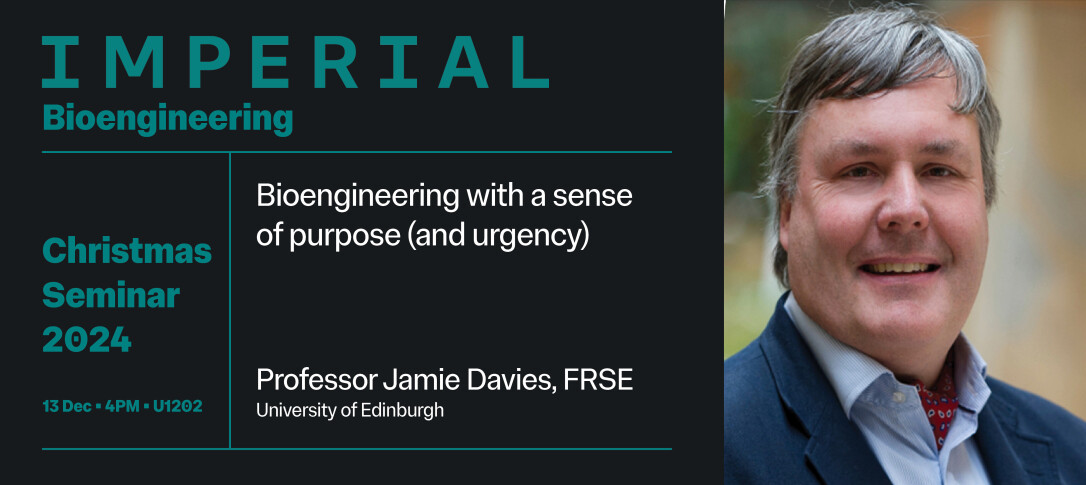
Join us at the Bioengineering Christmas Seminar to celebrate science and the end of the year.
This year, renowned researcher Professor Jamie Davies from the University of Edinburgh will wrap up our Department Seminar Series for 2024. Expect fascinating insights and the opportunity to network over Christmas-themed food and drinks.
All staff, students, and external visitors are warmly invited.
Guest speaker:
Professor Jamie A. Davies, MA, PhD, FRSM, FRSA, FRSB, PFHEA, CSciTeach, MIEEE, FRSE
Professor of Experimental Anatomy at the University of Edinburgh
Title:
Bioengineering with a sense of purpose (and agency).
Abstract:
Bioengineers, especially synthetic biologists, tend to model their field after electronics, with standard components arranged in modules, mounted on inert chassis, all designed bottom-up to be as predictable as a radio or telephone exchange. This works well at iGEM-scale, but less well for larger projects.
One problem is that we are not yet good at predicting the behaviour of biology from genes upwards (given an animal genome, we would have no idea what kind of animal it would make, unless we ‘cheated’ and compared it to all other known genomes to identify a close relative). Natural biological systems show goal-direction, purposive behaviour and agency.
I will present different examples of bioengineering along a spectrum, in which agency is either all in the hands of experimenters, or shared to a greater and greater extent with the biology itself, cells doing much of the nitty-gritty problem solving for us. I will argue that adding agential thinking to our existing ‘bottom-up’ toolbox could give bioengineers a step-change in effectiveness, as moving from machine code to high-level languages did for computer programming.
Biography:
Jamie Davies FRSE is Professor of Experimental Anatomy at the University of Edinburgh. He is a scientist-engineer with an interest in how simple things become complicated.
His lab studies organ development, by ‘wet-lab’ techniques and computer modelling, and applies knowledge gained to the problem of engineering realistic tissues and organs from stem cells. This is coupled to an interest in engineering completely novel forms of development using the techniques of synthetic biology. The lab also hosts the main drug database of the International Union of Basic and Clinical Pharmacology.
He has published over 200 research papers and 11 books on these topics.
PLEASE NOTE:
- Refreshments will be served immediately after this seminar.
- Efforts will be made to record this seminar if the speaker permits.
